Microcalicium arenarium (A. Massal.) Tibell
Bot. Not., 131: 237, 1978. Basionym: Cyphelium arenarium Hampe ex A. Massal. - Miscell. Lichenol.: 20, 1856.
Synonyms: Calicium arenarium (A. Massal.) Körb.; Calicium citrinum (Leight.) Nyl.; Calicium gneissicum Nyl.; Calicium pulverariae Auersw.; Coniocybopsis arenaria (A. Massal.) Vain.
Distribution: N - TAA (Puntillo & Puntillo 2009, Brackel 2016), Piem (Isocrono & al. 2004, Puntillo & Puntillo 2009, Brackel 2016, Hafellner 2023). C - Umb (Genovesi & al. 2001, Ravera & al. 2006, Puntillo & Puntillo 2009, Brackel 2016). S - Cal (Puntillo 1994, 1995, 1996, Puntillo & Puntillo 2009, Brackel 2016).
Description: Thallus not evident, not lichenized. Apothecia long-stalked, (0.6-)0.8-1.8(-2.5) mm tall, the stalk 0.08-0.12 mm thick, black or dark grey, smooth or coarsely granular from clusters of sclerotized hyphae, the outer part covered by groups of dark, sclerotized hyphae, the inner part of pale, periclinally arranged, interwoven hyphae. Capitulum spherical, 0.2-0.3 mm across. Exciple poorly developed, reddish brown in section, forming a small basal collar; paraphyses not sclerotized, dissolving early; mazaedium well-developed, not higher than the width of the capitulum, green-black. Asci 8-spored, broadly ellipsoid, formed in chains from ascogenous hyphae lacking croziers, with a single functional wall layer, deliquescing at maturity. Ascospores 1-septate, blue-green to green-brown, broadly ellipsoid, 6.7-8.2 x 2-2.9 µm, with a distinct ornamentation of spirally arranged ridges. Photobiont absent. Spot tests: exciple, stalk and ascospores K+ yellowish brown, N+ aeruginose. Chemistry: without lichen substances, except a green pigment.Note: on silicicolous lichens, soil, rootlets, decorticated stumps and algal colonies beneath overhangs of siliceous rocks, often together with Psilolechia lucida; probably more widespread in the Alps than the few records would suggest, reaching up to the mountains of Calabria.
Growth form: Fungus
Substrata: rocks
Reproductive strategy: mainly sexual
In underhangs rarely wetted by rain
Commonnes-rarity: (info)
Alpine belt: absent
Subalpine belt: absent
Oromediterranean belt: absent
Montane belt: rare
Submediterranean belt: absent
Padanian area: absent
Humid submediterranean belt: very rare
Humid mediterranean belt: extremely rare
Dry mediterranean belt: absent

Predictive model
Herbarium samples

Jacques Haine - Source: http://www.lichensmaritimes.org/index.php?task=fiche&lichen=934&lang=en
Belgium, Monthermé


P.L. Nimis; Owner: Department of Life Sciences, University of Trieste
Herbarium: TSB (14650)
2001/12/05

Jacques Haine - Source: http://www.lichensmaritimes.org/index.php?task=fiche&lichen=934&lang=en
Belgium, Monthermé

Jacques Haine - Source: http://www.lichensmaritimes.org/index.php?task=fiche&lichen=934&lang=en
Belgium, Monthermé

Jacques Haine - Source: http://www.lichensmaritimes.org/index.php?task=fiche&lichen=934&lang=en
Belgium, Monthermé

Jacques Haine - Source: http://www.lichensmaritimes.org/index.php?task=fiche&lichen=934&lang=en
Belgium, Houyet

Jacques Haine - Source: http://www.lichensmaritimes.org/index.php?task=fiche&lichen=934&lang=en
Belgium, Houyet

Jacques Haine - Source: http://www.lichensmaritimes.org/index.php?task=fiche&lichen=934&lang=en
Belgium, Houyet

Jacques Haine - Source: http://www.lichensmaritimes.org/index.php?task=fiche&lichen=934&lang=en
Belgium, Houyet

Jacques Haine - Source: http://www.lichensmaritimes.org/index.php?task=fiche&lichen=934&lang=en
Belgium, Houyet

Jacques Haine - Source: http://www.lichensmaritimes.org/index.php?task=fiche&lichen=934&lang=en
Belgium, Houyet

Jacques Haine - Source: http://www.lichensmaritimes.org/index.php?task=fiche&lichen=934&lang=en
Belgium, Houyet

Jacques Haine - Source: http://www.lichensmaritimes.org/index.php?task=fiche&lichen=934&lang=en
Belgium, Houyet
Growth form: Fungus
Substrata: rocks
Reproductive strategy: mainly sexual
In underhangs rarely wetted by rain
Commonnes-rarity: (info)
Alpine belt: absent
Subalpine belt: absent
Oromediterranean belt: absent
Montane belt: rare
Submediterranean belt: absent
Padanian area: absent
Humid submediterranean belt: very rare
Humid mediterranean belt: extremely rare
Dry mediterranean belt: absent

Predictive model
| Herbarium samples |

Jacques Haine - Source: http://www.lichensmaritimes.org/index.php?task=fiche&lichen=934&lang=en
Belgium, Monthermé


P.L. Nimis; Owner: Department of Life Sciences, University of Trieste
Herbarium: TSB (14650)
2001/12/05

Jacques Haine - Source: http://www.lichensmaritimes.org/index.php?task=fiche&lichen=934&lang=en
Belgium, Monthermé

Jacques Haine - Source: http://www.lichensmaritimes.org/index.php?task=fiche&lichen=934&lang=en
Belgium, Monthermé

Jacques Haine - Source: http://www.lichensmaritimes.org/index.php?task=fiche&lichen=934&lang=en
Belgium, Monthermé

Jacques Haine - Source: http://www.lichensmaritimes.org/index.php?task=fiche&lichen=934&lang=en
Belgium, Houyet

Jacques Haine - Source: http://www.lichensmaritimes.org/index.php?task=fiche&lichen=934&lang=en
Belgium, Houyet

Jacques Haine - Source: http://www.lichensmaritimes.org/index.php?task=fiche&lichen=934&lang=en
Belgium, Houyet

Jacques Haine - Source: http://www.lichensmaritimes.org/index.php?task=fiche&lichen=934&lang=en
Belgium, Houyet

Jacques Haine - Source: http://www.lichensmaritimes.org/index.php?task=fiche&lichen=934&lang=en
Belgium, Houyet

Jacques Haine - Source: http://www.lichensmaritimes.org/index.php?task=fiche&lichen=934&lang=en
Belgium, Houyet

Jacques Haine - Source: http://www.lichensmaritimes.org/index.php?task=fiche&lichen=934&lang=en
Belgium, Houyet

 INDEX FUNGORUM
INDEX FUNGORUM
 GBIF
GBIF
 DOLICHENS
DOLICHENS





